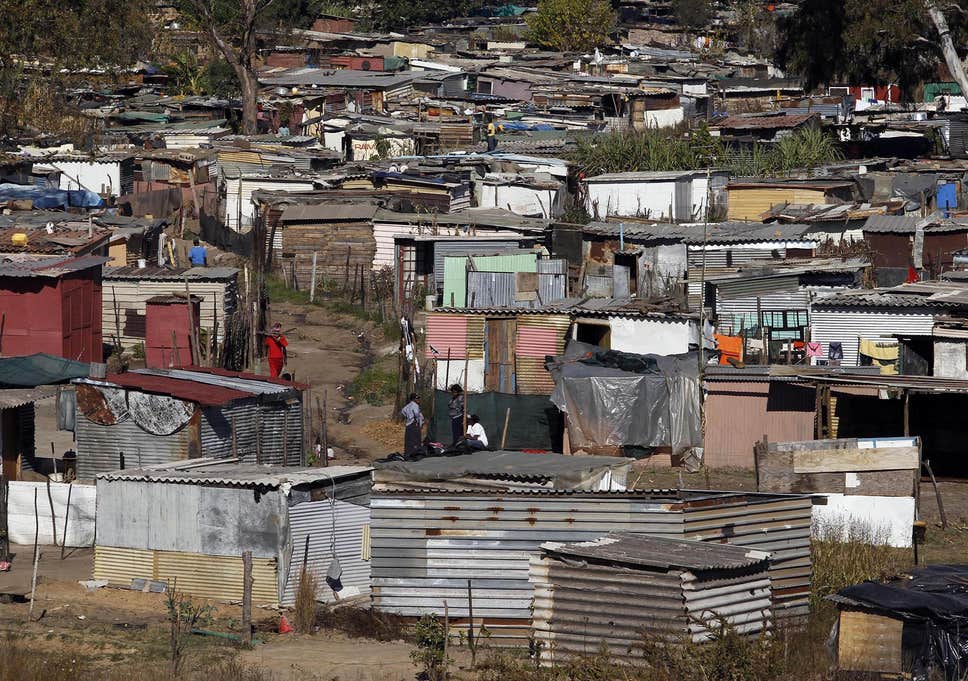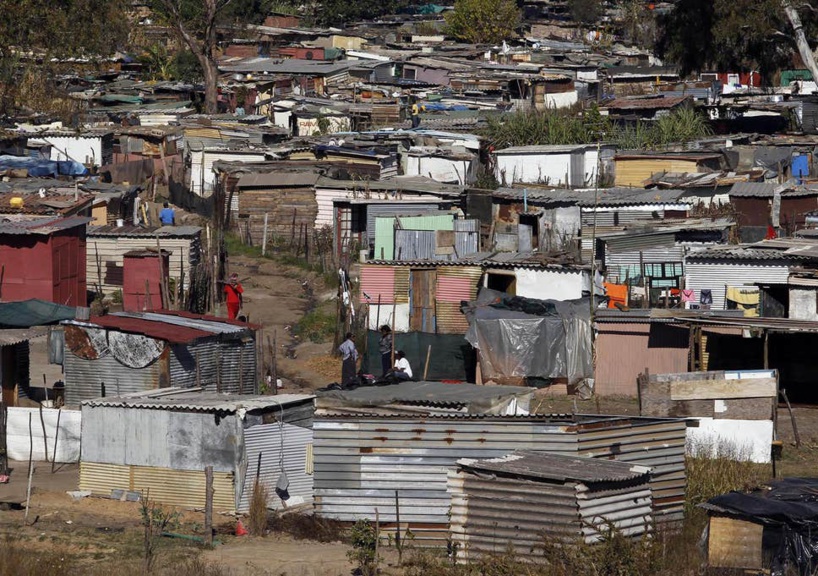Most African countries have vast mineral resources, a rapidly growing population that is increasingly well-educated, and have been the recipients of a huge amount of development aid. Why then do most of them continue to be amongst the most poverty-stricken places in the World?
The evolutionary origins of all mankind may be in a tiny area in the rift valley of modern-day Kenya, but the World has been tough on its common homeland. This is partly because of the way that Africa rules itself, but primarily because it suits the key global economic players to let Africa eat itself.
Failure of Democracy
Nowhere in Africa enjoys democratic rule, other than the offshore state of Mauritius. There is generally the merest appearance of democratic institutions and perpetual rigged elections. Behind every regime is a stronger Asian or western one pulling the strings.
Corruption
Corruption would not exist on such a grand scale unless it was being fed by outside interests propping up incompetent politicians who serve themselves instead of their people.
Fragile health infrastructure
Although billions of dollars have been spent on responding to epidemics over countless decades, sustainable institutions offering first-rate medical treatment have not been established - except in very isolated cases. We have to question whether the World is letting ebola, malaria and HIV plague Africa for a purpose?
Economic exploitation
With the possible exception of Botswana, the great wealth of Africa's minerals, forests and other vast riches have generally been carved up, appropriated by states and sold for a song. Why did Africa's population let this happen?
War and extremism
The easy way to keep a people suppressed is to give them war and keep them poisoned by extreme and intolerant views. All major powers outside Africa supply arms and both Russia and Iran do so with the most venomous intent. Will the Horn of Africa ever be allowed to recover economically or politically - and why is Djibouti an exception in its midst?
Rivalries and dysfunction governments
Africa is a place fraught with heated emotions where there should be consensus, and pettiness where there should be magnanimity. Could it be that this is still the bitter legacy of western colonialism working its way through successive generations after such prolonged past mistreatment?
Penal laws, weak law enforcement and societal attitudes
Most African states have legal structures, but they lack modernisation. It is not just a question about the "rule of law" - as many laws are simply outmoded. Capital and corporal punishment often still exist, discrimination against those with certain tribal ethnicities is common and a deep intolerance against those who do not fit a particular cultural or societal mould is still rife. Hence the demonization of albinos in east Africa and the criminalisation of homosexuality across much of the continent.
Poor investment in productive infrastructure
Although there is sufficient investment to achieve mineral extraction, deforestation, oil production - and banking to serve those ends - it does not stretch to wider areas of manufacturing production and high tech services. Where are the centres of excellence for Sub-Saharan African R&D?
According to Robin-Chater, Secretary-General of the Federation of International Employers (FedEE) and former advisor on equal opportunities to the European Commission,
"At the heart of this problem lies the huge Dinosaur of racial hatred. Beyond all other factors, Africa suffers from widespread collective racially-based prejudice aimed against it from outside and also eating it from within. The World has not grown up to comprehend that the colour of someone's skin neither defines their virtue as a human being, nor their innate intelligence. Until that changes, then the fate of Africa will be in the hands of those who wish to plunder it and the peoples driven out by such callous actions rejected in a desperate attempt to escape to our shores. Meanwhile we, the indifferent majority, endorse this barbarity by simply turning our backs.”
For further information please contact Eustace Fernsby at the FedEE Press Office on press@fedee.com and 0044 203 608 4412.
What is FedEE?
The Federation of International Employers (FedEE) is a leading corporate membership organisation for multinational companies. It was founded in 1998, with financial assistance from the European Commission. Today it is an independent body with corporate members all around the globe.
The evolutionary origins of all mankind may be in a tiny area in the rift valley of modern-day Kenya, but the World has been tough on its common homeland. This is partly because of the way that Africa rules itself, but primarily because it suits the key global economic players to let Africa eat itself.
Failure of Democracy
Nowhere in Africa enjoys democratic rule, other than the offshore state of Mauritius. There is generally the merest appearance of democratic institutions and perpetual rigged elections. Behind every regime is a stronger Asian or western one pulling the strings.
Corruption
Corruption would not exist on such a grand scale unless it was being fed by outside interests propping up incompetent politicians who serve themselves instead of their people.
Fragile health infrastructure
Although billions of dollars have been spent on responding to epidemics over countless decades, sustainable institutions offering first-rate medical treatment have not been established - except in very isolated cases. We have to question whether the World is letting ebola, malaria and HIV plague Africa for a purpose?
Economic exploitation
With the possible exception of Botswana, the great wealth of Africa's minerals, forests and other vast riches have generally been carved up, appropriated by states and sold for a song. Why did Africa's population let this happen?
War and extremism
The easy way to keep a people suppressed is to give them war and keep them poisoned by extreme and intolerant views. All major powers outside Africa supply arms and both Russia and Iran do so with the most venomous intent. Will the Horn of Africa ever be allowed to recover economically or politically - and why is Djibouti an exception in its midst?
Rivalries and dysfunction governments
Africa is a place fraught with heated emotions where there should be consensus, and pettiness where there should be magnanimity. Could it be that this is still the bitter legacy of western colonialism working its way through successive generations after such prolonged past mistreatment?
Penal laws, weak law enforcement and societal attitudes
Most African states have legal structures, but they lack modernisation. It is not just a question about the "rule of law" - as many laws are simply outmoded. Capital and corporal punishment often still exist, discrimination against those with certain tribal ethnicities is common and a deep intolerance against those who do not fit a particular cultural or societal mould is still rife. Hence the demonization of albinos in east Africa and the criminalisation of homosexuality across much of the continent.
Poor investment in productive infrastructure
Although there is sufficient investment to achieve mineral extraction, deforestation, oil production - and banking to serve those ends - it does not stretch to wider areas of manufacturing production and high tech services. Where are the centres of excellence for Sub-Saharan African R&D?
According to Robin-Chater, Secretary-General of the Federation of International Employers (FedEE) and former advisor on equal opportunities to the European Commission,
"At the heart of this problem lies the huge Dinosaur of racial hatred. Beyond all other factors, Africa suffers from widespread collective racially-based prejudice aimed against it from outside and also eating it from within. The World has not grown up to comprehend that the colour of someone's skin neither defines their virtue as a human being, nor their innate intelligence. Until that changes, then the fate of Africa will be in the hands of those who wish to plunder it and the peoples driven out by such callous actions rejected in a desperate attempt to escape to our shores. Meanwhile we, the indifferent majority, endorse this barbarity by simply turning our backs.”
For further information please contact Eustace Fernsby at the FedEE Press Office on press@fedee.com and 0044 203 608 4412.
What is FedEE?
The Federation of International Employers (FedEE) is a leading corporate membership organisation for multinational companies. It was founded in 1998, with financial assistance from the European Commission. Today it is an independent body with corporate members all around the globe.
 Menu
Menu
 Why is Africa Poor?
Why is Africa Poor?

















